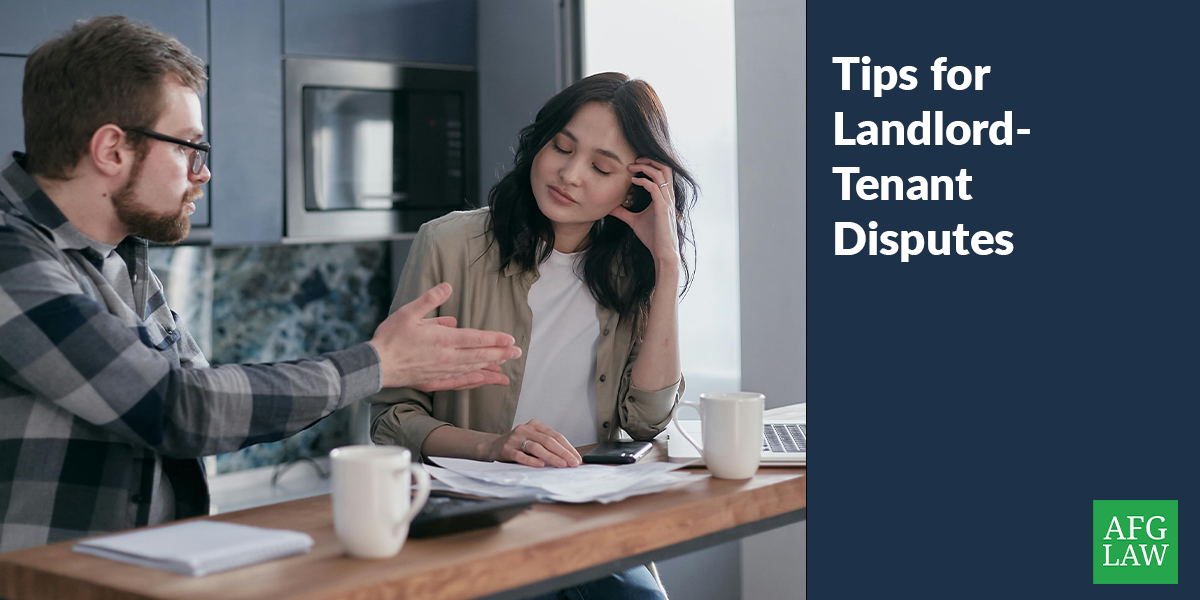Disputes between landlords and tenants can arise for a number of different reasons, from disagreements over rent to maintenance issues and who is responsible for them.
Knowing how to deal with these disputes is essential for maintaining a positive relationship and preventing the issue from being taken to court.
How conflicts between landlord and tenants are resolved
Resolving conflicts between landlord and tenants can be complex, but thankfully, there are a few different methods that can be used when an issue arises:
Review the tenancy agreement - Regardless of whether you are a landlord or a tenant, the first thing you should do is review the tenancy agreement. You should carefully review terms of the agreement to determine if the issue at hand has breached the contractual agreements.
Open communication - As a landlord, you should encourage open and honest dialogue with your tenants to discuss any concerns you have and how the issue can be resolved.
Compromise - If you’re looking to avoid going to court or involving solicitors, then finding a way to compromise is usually the best way to resolve a dispute.
Enlist the help of a solicitor - Going to court may be a last resort, but it doesn’t mean that it won’t be a possibility. An experienced dispute resolution solicitor will draft up legal documents for you and help guide you through the court process.
Tips for landlords dealing with tenant disputes
As a landlord dealing with a tenant dispute, it is important you prioritise open and honest communication. Before you even consider taking legal action, you should always try to resolve the issue through dialogue.
Keep all records of communication
Keeping a record of all interactions you have had with your tenant, including dates, times and the content of the conversation (such as complaints) can help you to keep track of where and why issues may have started.
You should also keep record of all relevant documents, such as tenancy agreements, notices and repair requests. If you wish to discuss the issue with your tenant, either in an informal or formal environment, having these documents on hand can make it easier to share your point of view and how the tenant may be in the wrong.
Understand your legal rights as a landlord
Again, before you talk to your tenant, it is important you are aware of your rights as a landlord, as well as the rights of your tenant.
You should familiarise yourself with local landlord-tenant laws and review your tenancy agreement to ensure it clearly outlines the responsibilities for both yourself and your tenant.
Use mediation
If you have tried talking to your tenant informally and you can’t come to a mutual agreement, then mediation may be the next option to try.
During mediation, a neutral third-party will help you and your tenant to communicate in a formal environment, allowing both parties to share their issues and concerns. The mediator will listen to both parties and help to facilitate communication until a middle ground is reached.

How to prevent tenant and landlord issues arising
Knowing how to prevent issues arising with your tenant is one of the best ways to maintain a friendly relationship and avoid potentially taking legal action.
Some of the most effective ways to prevent common landlord-tenant disputes include:
- Conduct tenant screenings - If you have had issues with tenants in the past, one thing you could introduce is tenant screening. This essentially means checking the history of potential tenants by requesting references from previous landlords, verifying income and employment details and conducting soft credit checks. This way, you can ensure that your tenant has a good history with previous landlords and whether or not they will have any issues with paying rent.
- Write thorough tenancy agreements - Your tenancy agreements should clearly state the responsibilities of both yourself as the landlord and those of the tenant. You should also clearly outline rules about noise, pets, decorating and guests, as well as any potential penalties if these rules are broken. It is also important you clearly describe procedures for complaint disputes.
- Prompt maintenance - If a tenant makes a complaint about an issue related to maintenance of the property, it is essential that you arrange to fix the issue as soon as possible. You should also provide proper notice in plenty of time before the maintenance is scheduled to take place.
- Conduct regular inspections - Conducting inspections regularly can help you to spot any potential issues early on and inform the tenant before it becomes a bigger issue. You should also be providing proper notice to your tenants before you conduct any inspections.
- Foster a positive friendship - Being respectful and friendly with your tenants can help to prevent issues from occurring since there will be a greater level of respect in place from the get go. This can also make it much easier to communicate issues to one another without it becoming hostile.
Options for landlords when dealing with tenant disputes
As a landlord, you should always be trying to keep a healthy relationship between yourself and your tenants. This can usually be achieved by all parties having a clear understanding about the rules of the tenancy and how issues will be dealt with should one arise.
However, we know this is easier said than done. At AFG Law, we understand the complexities that come with landlord-tenant relationships and how frustrating it can be if an issue arises.
Our team of dispute resolution solicitors have years of experience in providing legal support for landlords across a wide variety of issues, including late payments, property damage and nuisances. Get in touch with our team today to see how we can help you.
